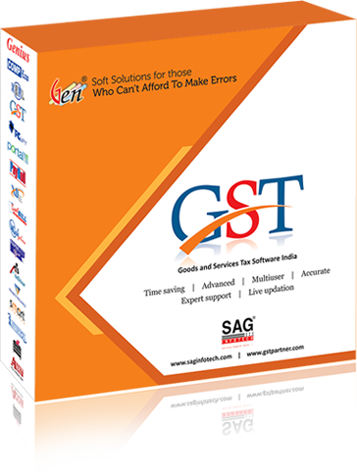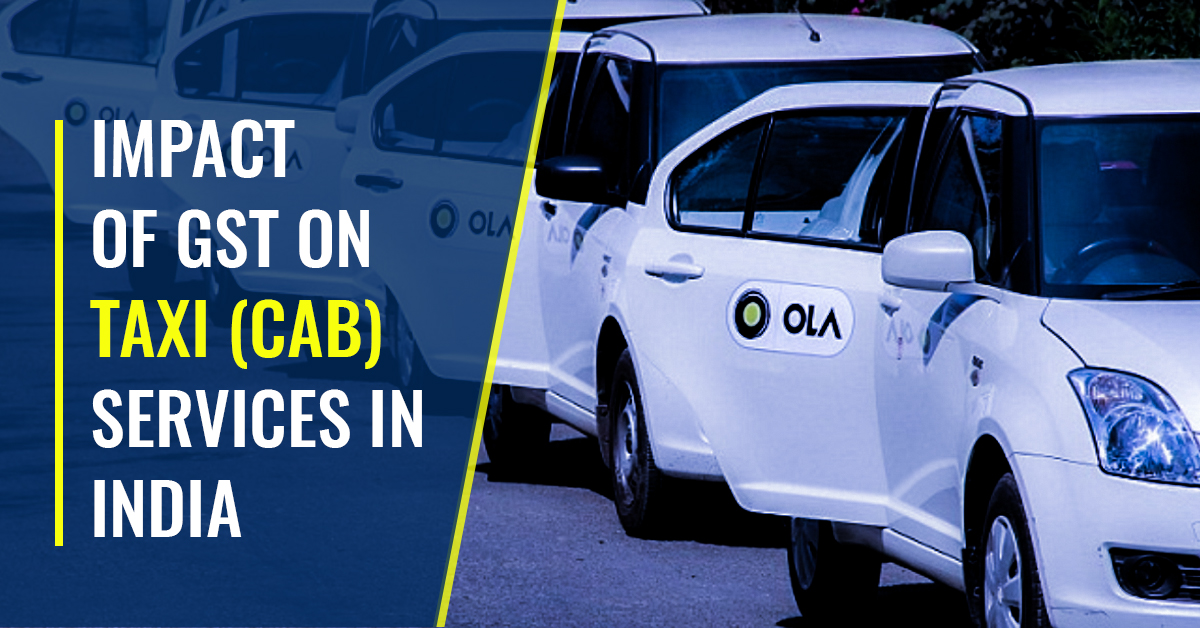Cab services like Ola and Uber have been getting much popularity in India in the recent years. Taxis are a preferred choice of transport for middle and upper-class people in the country for short as well as long commutes.
Thanks to the digitization of taxi services, it is now easier than ever to hire a cab or even auto whenever you need to communicate from one place to another. The implementation of the Goods and Services Tax (GST) in India has had a visible impact on the cab industry, just like every other major industry in the state.
The main impact has been on the radio taxis, such as Ola and Uber, which you hire by using an app on your smartphone. Let’s find out more about the impact of GST on taxi services in India.
Contents
GST Rate on Taxi Services
A radio taxi, for GST purpose, is defined as a taxi that is digitally connected with a central control office and can be tracked via GPS or GPRS. Ola and Uber are the common examples.
As per the GST norms, the services provided through radio taxis and AC buses are taxable, while auto rickshaws (including e-rickshaws and Ola Auto) and Metered cabs are not taxable under GST.
Read Also: AAR: Now Vehicle Owners Pay 18% GST on Pollution Certificate
The GST rate for rent a cab service is 5%. That means users will have to pay 5% tax on the fare of their cab rides. (The tax details are usually mentioned in your bill provided by the cab service company.) The good thing is that earlier the tax rate on cab services was higher.
Service Tax on Cab Services – Before GST
Before the launch of GST, there was a service tax (with 60% abatement) levied on radio taxis, AC buses and contract carriages. The effective service tax on these services was 6%. There was no tax on metered taxis, same as now.
That means GST on car hire is lower than service tax.
GST on Leasing of Taxi
Before the GST, leasing of cars (without transferring the ownership) was taxable at 14% under VAT or 15% under service tax. However, GST has increased the troubles for the leasing industry. As of now, GST on leasing a car is 28%, the same GST on purchasing a new car. In addition, a Cess (ranging from 1% to 15% depending on the car type) is also applicable on vehicle leasing services.
GST on other Vehicle-related Services
GST on fleet management services is 18%.
GST on car loan services is 18%.
Reverse Charge on Renting a Cab
GST is applicable according to the reverse charge mechanism on rent-a-cab services. It means the service receiver companies, such as Ola and Uber, will have to pay the tax amount under reverse charge.
For GST purpose, the taxi company is the receiver of services while the taxi driver/owner is the provider of services. Here’s how it works.
- The driver provides taxi services to the company.
- The company pays a share of the cab fare to the driver.
- The company pays GST (5% of the fare amount) to the government.
- The company provides services to the passengers and charges GST on the fare.
Since the cab company is paying GST on the reverse charge basis, it can claim the ITC of tax paid and adjust it with the output tax liability.
Input Credit (ITC) on Rent a Cab Services Under GST
As we mentioned before, taxi companies can claim ITC on various inputs, however, there is a catch.
If a cab company wants to claim a credit of the tax paid by them on inputs, they will have to pay 12% output GST. The alternative is not to claim ITC on input tax and pay only 5% output tax.
ITC cannot be claimed by businesses or individuals who hire cab services for any personal or official use.
Impact of GST on Cab Industries
As a direct impact, GST has brought relaxation for cab companies and service users. The reduction in tax rate has reduced the cost of hiring taxi services in India. However, the increase in GST on car leasing services has increased problems for the cab companies and drivers as they are now forced to pay a bigger share of their earnings to the government.






